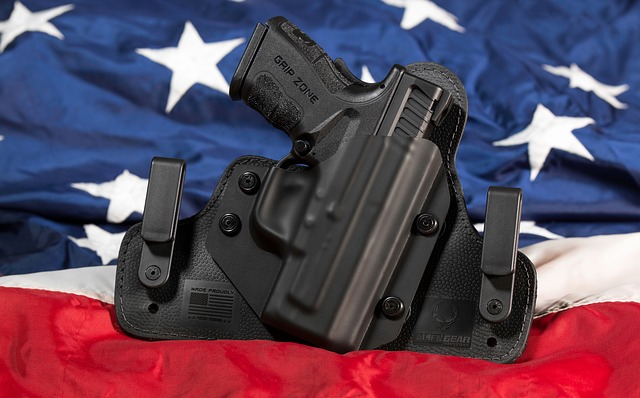4 Pieces Of Gun Legislation Every Owner Should Know
Image by Ibro Palic from Pixabay
Every piece of gun legislation in the U.S. comes from one particular law that’s as old as the country itself–the Second Amendment. Ratified in 1791, it protects Americans’ rights to bear arms, giving them the means to fight the government if it becomes oppressive. Back then, it also gave them the means to defend themselves should the English decide to reconquer them.
As the official transcript goes: “A well-regulated Militia, being necessary to the security of a free State, the right of the people to keep and bear Arms, shall not be infringed.”
But as the decades passed, people slowly found out (sometimes the hard way) that the Amendment alone wouldn’t be enough. The 1920s and 1930s were turbulent times, as mafia wars broke out left and right, leaving scores of dead and wounded. Under pretenses, the Amendment made purchasing guns too easy.
In light of this, the federal government enacted several laws throughout the 20th century to curtail gun crime. These laws introduced safeguards like licenses, background checks, and restrictions on the type of guns that civilians can buy.
This article will take a closer look at a few important ones, including an example that’s the only non-federal legislation on this list.
1. Sullivan Act of 1911
Thanks to the Sullivan laws, you’re able to conveniently get a Texas license to carry online.
Despite the Second Amendment’s existence, there hasn’t been a federal system of gun ownership licensing. States enact their own rules and regulations, such as New York’s Sullivan Act of 1911. Passed following the assassination attempt on then-mayor William Gaynor in 1910, the Sullivan Act outlawed carrying a gun without a license.
While the Act was a ‘may-issue’ legislation, it set the stage for other states to pass their respective Sullivan laws. And, it didn’t take long before states became more liberal in giving licenses, starting with the first ‘shall-issue’ legislation for New Hampshire in 1923.
2. Gun Control Act of 1968
America has its fair share of bloody political violence, but perhaps none as severe as 1968. Martin Luther King, Jr., a prominent civil rights figure, was killed in a motel in Tennessee in April. Then, two months later, then-presidential candidate Robert Kennedy was mortally shot in a Los Angeles hotel. And, it had only been five years since Robert’s brother, John, was shot dead in Dallas.
Under pressure from the string of political assassinations, then-President Lyndon Johnson signed into law H.R. 17735, which became the Gun Control Act of 1968. In a way, this piece of gun legislation defined the country’s current approach to gun control. Firearms dealers now had to keep track of everyone who bought guns from them, and they had to be duly licensed, too.
The law also banned selling guns to minors, felons, and “mental defectives,” which is a first at the time.
3. Brady Handgun Violence Prevention Act of 1993
The following two examples are legacies of the Clinton administration in tackling gun control. The first is the Brady Handgun Violence Prevention Act of 1993, named after James Brady, the White House press secretary during President Ronald Reagan’s tenure. In 1981, he suffered debilitating injuries after being shot during the attempt at Reagan’s life.
The Act established the National Instant Criminal Background Check System (NICS), maintained by the FBI, and required checking with the NICS database before selling any gun to an individual. It applies whether someone buys the gun from a gun store or directly from the manufacturer.
4. Public Safety and Recreational Firearms Use Protection Act
This specific legislation isn’t a separate law but rather a subsection in the broader (and arguably controversial) Violent Crime Control and Law Enforcement Act of 1994. Gun owners refer to this as the assault weapons ban, which prohibits civilians from owning certain semiautomatic firearms categorized as assault weapons.
You can probably guess why this law is controversial. Given the string of mass shootings that had happened in the 2010s, it hardly curtailed such crimes. Many gun owners and legal experts believe the ban is ineffective, not just because it infringes upon the Second Amendment but also the issue with defining what makes a gun an ‘assault weapon.’
Conclusion
There’s no doubt that Americans love their guns and that they’ll fight tooth and nail to keep them. If you ever plan on getting yourself one in the future, take note of these laws and more. Above all else, if you really require having a gun in your possession or just fascinated with guns, it’s important to exercise utmost gun discipline.
Anthony Michaels is a social media influencer who has gained thousands of followers online. With this role, Anthony believes that it is his responsibility to update the online community with the latest news. Anthony contributes articles that talk about anything under the sun but often focuses on politics, music, and literature.

